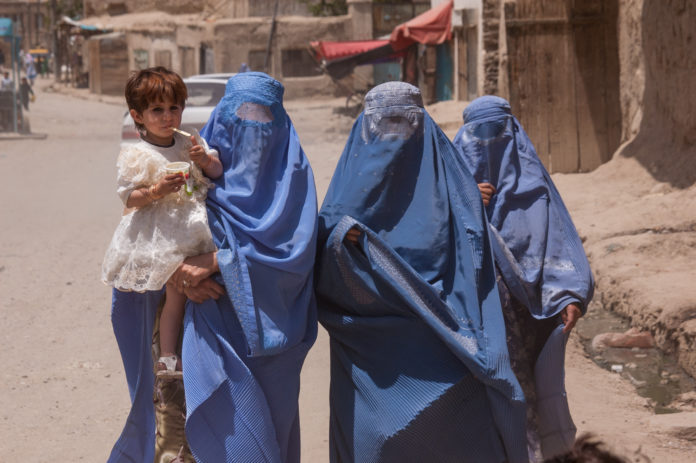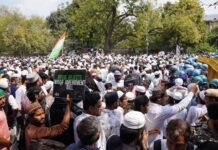The authorities in Afghanistan have recommended that all women wear the burqa with a face covering in public.
Sources in Afghanistan have told 5Pillars that the edict will only be obligatory for government workers at the moment and remains a recommendation for other women in society.
“They should wear a chadori (head-to-toe burqa) as it is traditional and respectful,” said a decree issued by Islamic Emirate leader Sheikh Haibatullah Akhunzada that was released by authorities at a function in Kabul on Saturday.
A spokesman for the Ministry for the Propagation of Virtue and the Prevention of Vice read the decree from Sheikh Akhunzada at a media conference, saying that a woman’s father or closest male relative would be visited and eventually imprisoned or fired from government jobs if she did not cover her face outside the home.
The spokesman added that the ideal face covering is the burqa. Most women in Afghanistan wear a headscarf, but many in urban areas, such as Kabul, do not cover their faces.
Since coming to power last August the Islamic Emirate has tolerated women who do not observe hijab properly even though it conflicts with Islamic law.
However, the Ministry of Propagation of Virtue and the Prevention of Vice announced a few months ago that women could not travel further than 72km (45 miles) without a close male relative.
Subscribe to our newsletter and stay updated on the latest news and updates from around the Muslim world!
This was further expanded to include travelling abroad, and several solo women travellers have been reportedly stopped from boarding flights.
Girls’ education also remains a thorny issue in Afghanistan. At the moment girls are being educated at primary level and women are being educated at university level. However, only private schools are educating girls at secondary level apart from a few provinces.
The U.S. and other nations have cut development aid and enforced strict sanctions on the banking system since the IEA took over in August, pushing the country towards economic ruin.






















